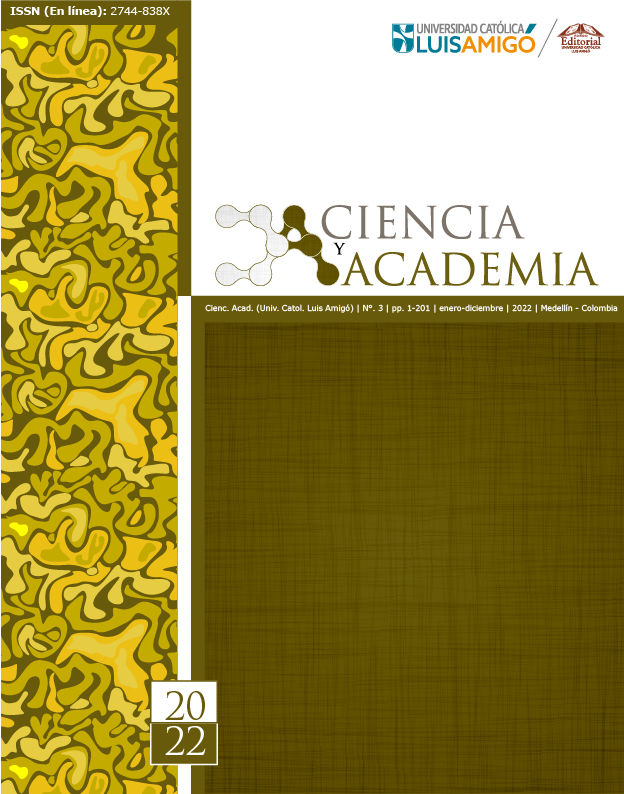The teaching role and formative research, nuance from reflection and knowledge generation
DOI:
https://doi.org/10.21501/2744838X.4482Abstract
The XXI century and the globalizing trends in all the fields in which human beings
develop promote historical and social changes and transformations, it is therefore
the educational field and the training of professionals with research skills and
competences that would be able to make a difference in the training practices of future
teachers, teachers with commitment to the commitment from the dissemination and
production of knowledge based on reflections and critical positions that reconstruct
the realities and the reconstruct the realities and manage to solve the different
questions that arise from the readings that are made of the readings that are made
of the different environments (García López, 2015). The teacher must have a nuance
between his profession and the investigative work, where he is continually concerned
about building and generating his own knowledge, analysis and conclusions of
research exercises, in order to avoid the replication of previous models in the
educational area that only lead to lack of interest and educational quality, evading
one of the fundamental purposes of the formation of human beings as it is the social
commitment, because it should be taken as a point of reference the observation of
a particular context and its characteristics, inquire into the past about the compiled
situations and collect all this to form the critical and analytical thinking from bases
with foundations, which is the result of an investigative process of character. the
result of an investigative process.
Downloads
References
Fernández-Fernández, S., Arias-Blanco, J. M., Fernández-Alonso, R., BurgueraCondon, J., & Fernández-Raigoso, M. (2016). Pensamiento reflexivo e investigador en Educación. Aspectos a tener en cuenta en la formación del profesorado.
RELIEVE, 22(2), 1-17. https://doi.org/10.7203/relieve.22.2.8425 García López, G. (2015). La investigación en la formación docente inicial: Una mirada desde la perspectiva sociotransformadora. Saber, 27(1), 143–151.
Hernández Arteaga, I. (2009). El docente investigador en la formación de profesionales. Revista Virtual Universidad Católica del Norte, 1(27), 1–21. https://revistavirtual.ucn.edu.co/index.php/RevistaUCN/article/view/106
Universidad EAFIT. (25 de mayo de 2017). El papel de la investigación en la transformación de la escuela [Video]. YouTube. https://www.youtube.com/watch?v=WLkl8NRALNA
Published
How to Cite
Issue
Section
License
Copyright (c) 2022 Ciencia y Academia

This work is licensed under a Creative Commons Attribution-NoDerivatives 4.0 International License.
La revista y los textos individuales que en esta se divulgan están protegidos por las leyes de copyright y por los términos y condiciones de la Licencia Creative Commons Atribución-No Comercial- 4.0 Internacional. Permisos que vayan más allá de lo cubierto por esta licencia pueden encontrarse en http://www.funlam.edu.co/modules/fondoeditorial/






